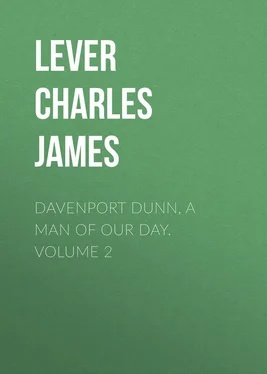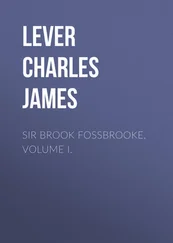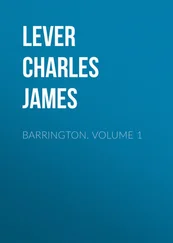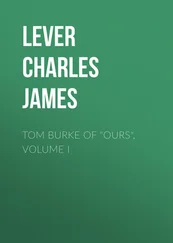Charles Lever - Davenport Dunn, a Man of Our Day. Volume 2
Здесь есть возможность читать онлайн «Charles Lever - Davenport Dunn, a Man of Our Day. Volume 2» — ознакомительный отрывок электронной книги совершенно бесплатно, а после прочтения отрывка купить полную версию. В некоторых случаях можно слушать аудио, скачать через торрент в формате fb2 и присутствует краткое содержание. Жанр: literature_19, foreign_antique, foreign_prose, на английском языке. Описание произведения, (предисловие) а так же отзывы посетителей доступны на портале библиотеки ЛибКат.
- Название:Davenport Dunn, a Man of Our Day. Volume 2
- Автор:
- Жанр:
- Год:неизвестен
- ISBN:нет данных
- Рейтинг книги:3 / 5. Голосов: 1
-
Избранное:Добавить в избранное
- Отзывы:
-
Ваша оценка:
- 60
- 1
- 2
- 3
- 4
- 5
Davenport Dunn, a Man of Our Day. Volume 2: краткое содержание, описание и аннотация
Предлагаем к чтению аннотацию, описание, краткое содержание или предисловие (зависит от того, что написал сам автор книги «Davenport Dunn, a Man of Our Day. Volume 2»). Если вы не нашли необходимую информацию о книге — напишите в комментариях, мы постараемся отыскать её.
Davenport Dunn, a Man of Our Day. Volume 2 — читать онлайн ознакомительный отрывок
Ниже представлен текст книги, разбитый по страницам. Система сохранения места последней прочитанной страницы, позволяет с удобством читать онлайн бесплатно книгу «Davenport Dunn, a Man of Our Day. Volume 2», без необходимости каждый раз заново искать на чём Вы остановились. Поставьте закладку, и сможете в любой момент перейти на страницу, на которой закончили чтение.
Интервал:
Закладка:
“Have you any idea who is Terence Driscoll? Some extraordinary notes bearing this signature, ill-written and ill-spelt, have fallen into my hands as I rummaged amongst the papers, and they are all full of this claim. It is but too plain Lackington suffered these people to terrify him, and this Driscoll’s tone is a mixture of the meanest subserviency and outrageous impertinence. It is not unlikely Fordyce may know him. Of course, I need not add one word of caution against your mention of this affair, even to those of your friends with whom you are in closest intimacy. It is really essential not a hint of it should get abroad.
“I have little doubt, now, looking back on the past, that anxiety and care about this matter have had a large share in bringing on Lackington’s attack. He had been sleepless and uneasy for some time back, showing an eagerness, too, about his letters, and the greatest impatience if any accident delayed the post Although all my maturer thoughts – indeed, my convictions – reject attaching any importance to this claim, I will not attempt to conceal from you how unhappy it has made me, nor how severely it has affected my nerves.”
With one more urgent appeal to lose not an hour in hastening over the Alps, the letter concluded; the single word “weaker,” apparently written after the letter was sealed, giving a deep meaning to the whole.
Davis was not satisfied with one perusal of the latter portion of this letter, but read it over carefully a second time; after which, taking a sheet of paper, he wrote down the names of Fordyce and Terence Driscoll. He then opened a Directory, and running his eye down a column, came to “Fordyce and Fraude, 7 Furnivats Inn, solicitors.” Of Terence Driscolls there were seventeen, but all in trade, – tanners, tinmen, last-makers, wharfingers, and so on; not one upon whom Davis could fix the likelihood of the correspondence with the Viscount. He then walked the room, cigar in mouth, for about an hour, after which he sat down and wrote the note to Beecher which we have given in a former chapter, with directions to call upon Stein, the moneylender, and then hasten away from Aix as speedily as possible. This finished, he addressed another and somewhat longer epistle to Lazarus Stein himself, of which latter document this true history has no record.
We, perhaps, owe an apology to our reader for inverting in our narrative the actual order of these events. It might possibly have been more natural to have preceded the account of Beecher’s reception of the letter by the circumstances we have just detailed. We selected the present course, however, to avoid the necessity of that continual change of scene, alike wearisome to him who reads as to him who writes; and as we are about to sojourn in Mr. Davis’s company for some time to come, we have deferred the explanation to a time when it should form part of a regular series of events. Nor are we sorry at the opportunity of asking the reader to turn once again to that brief note, and mark its contents. Though Davis was fully impressed with the conviction that Lord Lackington’s days were numbered; though he felt that, at any moment, some chance rumor, some flying report might inform Beecher what great change was about to come over his fortunes, – yet this note is written in all the seeming carelessness of a gossiping humor: he gives the latest news of the turf, he alludes to Beecher’s new entanglements at home, to, his own newly discovered martingale for the play-table, trusting to the one line about “Benson’s people” to make Beecher hasten away from Aix, and from the chance of hearing that his brother was hopelessly ill. While Grog penned these lines, he would have given – if he had it – ten thousand pounds that Beecher was beside him. Ay, willingly had he given it, and more, too, that Beecher might be where no voice could whisper to him the marvellous change that any moment might cause in his destiny. Oh, ye naturalists, who grow poetical over the grub and the butterfly, what is there, I ask ye, in the transformation at all comparable with that when the younger brother, the man of strait and small fortune, springs into the peer, exchanging a life of daily vicissitudes, cheap dinners and duns, dubious companionships and high discounts, for the assured existence, the stately banquets, the proud friendships, the pomp and circumstance of a lord? In a moment he soars out of the troubled atmosphere of debts and disabilities, and floats into the balmy region whose very sorrows never wear an unbecoming mourning.
Grog’s note was thus a small specimen of what the great Talleyrand used to call the perfection of despatch writing, “not the best thing that could be said on the subject, but simply that which would produce the effect you desired.” Having sent off this to Beecher, he then telegraphed to his man of business, Mr. Peach, to ascertain at Fordyce’s the latest accounts of Lord Lackington’s health, and answer “by wire.”
It was far into the night when Davis betook himself to bed, but not to sleep. The complications of the great game he was playing had for him all the interest of the play-table. The kind of excitement he gloried in was to find himself pitted against others, – wily, subtle, and deep-scheming as himself, – to see some great stake on the board, and to feel that it must be the prize of the best player. With the gambler’s superstition, he kept constantly combining events with dates and eras, recalling what of good or ill-luck had marked certain periods of his life. He asked himself if September had usually been a fortunate month; did the 20th imply anything; what influence might Holy Paul exert over his destiny; was he merely unlucky himself, or did he bring evil fortune upon others? If he suffered himself to dwell upon such “vain auguries” as these, they still exerted little other sway over his mind than to nerve it to greater efforts; in fact, he consulted these signs as a physician might investigate certain symptoms which, if not of moment enough to call for special treatment, were yet indicative of hidden mischief.
His gambling experiences had given him the ready tact, by a mere glance around the table, to recognize those with whom the real struggle should be waged; to detect, in a second, the deep head, the crafty intelligence, that marvellous blending of caution with rashness that make the gamester; and in the same spirit be now turned over in thought each of those with whom he was now about to contend, and muttered the name of Davenport Dunn over and over. “Could we only ‘hit it off’ together, what a game might we not play!” was his last reflection ere he fell off to sleep.
CHAPTER VII. A DISCURSIVE CONVERSATION
Davis was surprised, and something more, as he entered the breakfast-room the next morning to find the Rev. Paul Classon already seated at the table, calmly arranging certain little parallelograms of bread-and-butter and sardines. No signs of discomfiture or shame showed themselves in that calmly benevolent countenance. Indeed, as he arose and extended his hand there was an air of bland protection in the gesture perfectly soothing.
“You came back in a pretty state last night,” said Davis, roughly.
“Overtaken, Kit, – overtaken. It was a piece of good news rather than the grape juice did the mischief. As the poet says, —
“‘Good tidings flowed upon his heart
Like a sea o’er a barren shore,
And the pleasant waves refreshed the spot
So parched and bleak before.’
“The fact is, Kit, you brought me luck. Just as I reached the Post-Office, I saw a letter addressed to the Rev. Paul Classon, announcing that I had been accepted as Chaplain to the great Hydropathic Institution at Como! and, to commemorate the event, I celebrated in wine the triumphs of water! You got the letters all safely?”
Читать дальшеИнтервал:
Закладка:
Похожие книги на «Davenport Dunn, a Man of Our Day. Volume 2»
Представляем Вашему вниманию похожие книги на «Davenport Dunn, a Man of Our Day. Volume 2» списком для выбора. Мы отобрали схожую по названию и смыслу литературу в надежде предоставить читателям больше вариантов отыскать новые, интересные, ещё непрочитанные произведения.
Обсуждение, отзывы о книге «Davenport Dunn, a Man of Our Day. Volume 2» и просто собственные мнения читателей. Оставьте ваши комментарии, напишите, что Вы думаете о произведении, его смысле или главных героях. Укажите что конкретно понравилось, а что нет, и почему Вы так считаете.












